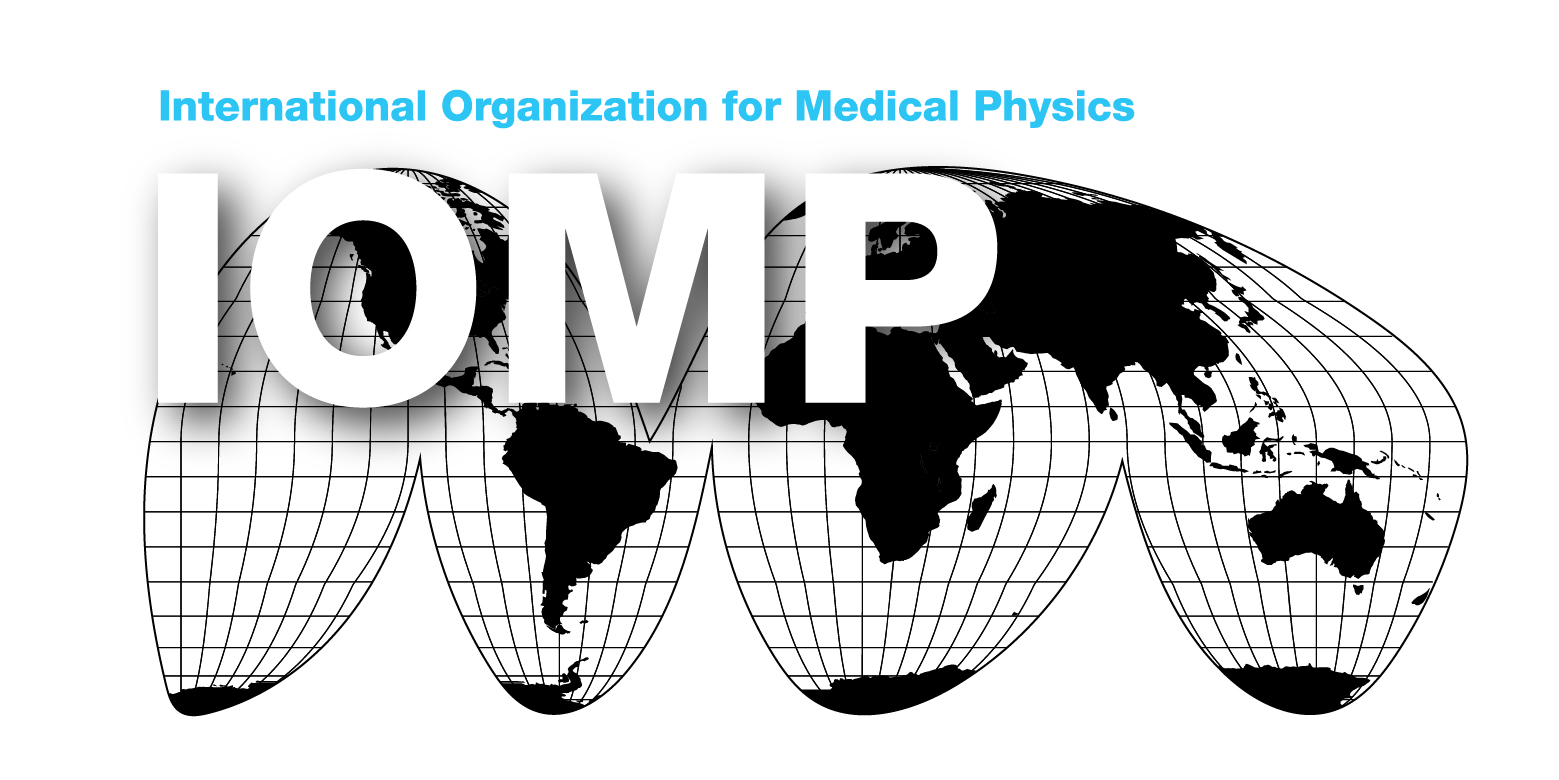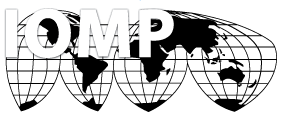IOMP IMPW 2022 Webinar Certificates now available for download
IOMP IMPW 2022 Webinar Certificates now available for download

Dear Colleagues,
We are delighted to continue with the tradition of webinars of IOMP School during IMPW 2022 that were started during IMPW 2020. We keep one webinar of 60 minutes duration typically at 12 noon GMT. We have now started issuing Certificate of Attendance for our webinars and are going to issue CPD/CME points soon as a trial.
Despite the time zone differences, the webinars have been having participants from more than 90 countries including those in extreme time zone in East and West. The number of participants has been increasingly so much that we had to increase our payment to zoom by almost 9 times.
The recorded webinars are made available on IOMP website within a few hours of actual webinar and the visit statistics in encouraging.
As in previous years, we will like different countries and organizations to organize activities during the IMPW 2022.
We have provided possibilities by which you can organize events in your city and country with the objective which are reproduced here:
1. Popularizing the profession among other colleagues in the clinical and non-clinical field as also among public,
2. Promoting medical physics among physics colleagues to let them know how their students can find a career in medical physics
3. To let medical physicists know how they can do better in patient care
You are welcome to choose your theme that best suits you locally
Madan Rehani
President, IOMP

Dear Colleagues,
IOMP celebrates the International Medical Physics Week (IMPW) in May 2022, from Monday 9 to Friday 13. Many of the most exciting scientific developments take place in the border areas between physics and medicine. As in the previous years, IOMP organizes once again a series of webinars during the Week to cover a few of these interdisciplinary activities. All IMPW webinars will be freely available so anyone can register and benefit from the expertise of distinguished speakers.
The main purpose of the International Medical Physics Week (IMPW) is to motivate organization of activities that will result in the promotion of the subject of medical physics globally. We strongly encourage all regional and national organizations to organize online and on-site events taking into consideration pandemic restrictions. IMPW is a great opportunity to raise awareness of medical physics, improve public understanding of the role medical physicists play in healthcare, enhance interaction between medical physicists and the society at large and promote active involvement of university professors and students in medical physics related activities.
We have many reasons to gather and discuss topics of scientific interest. IOMP invites you to participate in the webinars and celebrate the IMPW 2022.
With my best wishes,
Prof. John Damilakis
Vice President, IOMP
Monday, 9th May 2022 at 12 pm GMT; Duration 1 hour
Organizer: John Damilakis, IOMP
Moderator: John Damilakis, IOMP
Speakers:
 Marie-Odile Bernier, MD, PhD, works as researcher in the Epidemiology Department of the French Institute for radiation Protection and Nuclear safety (IRSN) since 2005. She is coordinating epidemiological studies on low dose exposure in the field of medical exposure at IRSN. She launched a large cohort specifically designed to study cancer risk in 100 000 children exposed to CT scans in France. She has also more than 25 years of experience as endocrinologist, specialized in the treatment of thyroid cancer.
Marie-Odile Bernier, MD, PhD, works as researcher in the Epidemiology Department of the French Institute for radiation Protection and Nuclear safety (IRSN) since 2005. She is coordinating epidemiological studies on low dose exposure in the field of medical exposure at IRSN. She launched a large cohort specifically designed to study cancer risk in 100 000 children exposed to CT scans in France. She has also more than 25 years of experience as endocrinologist, specialized in the treatment of thyroid cancer.

Sophie Jacob, PhD, is a radiation epidemiologist at the French Institute for radiation Protection and Nuclear safety (IRSN), France since December 2007. She is specialized in non-cancer effects of ionizing radiation in the context of medical exposure. She coordinated the French O’CLOC study on radiation cataract and lens opacities and was then involved in the OPERRA – EURALOC study (2013-2017), a European multicentric study. In 2013, she initiated research on radiation-induced cardiovascular effects after breast cancer radiation therapy with the French BACCARAT study, further developed in the frame of European MEDIRAD EARLY-HEART study (2017-2022). Dr. Jacob received a PhD in epidemiology (2007) and a master degree in mathematics and biostatistics for biology (2004) from the University of Paris, France.
Abstract:
The use of ionising radiation in medicine is steadily increasing, with clear benefits for population health through improved diagnostic and therapeutic technologies, but it also raises issues in the radiation protection of patients and medical workers.
There is accumulating evidence from epidemiological studies for increased risk of some non-cancer effects following exposure to ionising radiation at low to moderate doses, in particular for circulatory diseases, lens opacities or neurological effects, that may take decades to manifest and present clinically. But there are still uncertainties related to the risks of late-developing non-cancer diseases and effects of radiation exposure.
This webinar will provide an overview of recent epidemiological results and ongoing research in the era of non-cancer diseases related to ionising radiation exposure, with a special emphasis on medical application of radiation.
Tuesday, 10th May 2022 at 12 pm GMT; Duration 1 hour
CME/CPD credit point shall be awarded for participation in the webinar in full.
Organizers: Madan Rehani and Pedro Vaz
Moderator: Pedro Vaz, Portugal, Centro de Ciências e Tecnologias Nucleares of IST (University of Lisbon), Portugal.
Speakers:
Choonsik Lee, PhD; NCI, NIH, USA
Manuel Bardiès, INSERM (National Institute of Health and Medical Research), France

Pedro Vaz, Portugal, Centro de Ciências e Tecnologias Nucleares of IST (University of Lisbon), Portugal.
Pedro Vaz, Ph.D. in Physics, is Coordinator Researcher at Instituto Superior Técnico, University of Lisbon. His areas of research include Radiation Protection and Dosimetry. He was the President of the Center for Nuclear Sciences and Technologies of IST (2017-2020). He is/has been Portuguese Representative in several Committees of the European Union (Group of Experts in Radiological Protection of the EURATOM Treaty and Consultative Committee on Energy Fission of the European Union) and the OECD/NEA (namely the Committee on Radiological Protection and Public Health). He is the institutional representative in European Union research platforms such as MELODI and EURADOS. He served as the National Liaison Officer (NLO) of Portugal for the International Atomic Energy Agency (IAEA). Is member of the Editorial Board of the journal “European Journal of Radiology” and Associated Editor of the journal “Radiation Physics and Chemistry”. Pedro Vaz teaches Radiation Protection and Dosimetry topics in different Portuguese Universities.
Topic: Current status and challenges in organ dose estimation for patients undergoing diagnostic radiology procedures

Choonsik Lee, PhD; NCI, NIH, USA
Dr. Lee is a senior investigator and Dosimetry Unit head at the United States National Cancer Institute. He has more than 20 years of expertise on computational and experimental radiation dosimetry for patients undergoing medical radiation procedures. His research team develops methods and tools to estimate radiation dose from medical exposures, including treatment and diagnostic tests, in order to generate reliable dosimetry data for use in epidemiological studies of ionizing radiation and cancer risk. Dr. Lee has involved in several task groups in the International Commission on Radiological Protection in the past years and was appointed to the ICRP Committee 2 (Doses from Radiation Exposure).
Abstract
Diagnostic medical radiation sources have substantial contributions to effective dose per capita worldwide. Although radiology procedures provide indisputable benefits to patients, there are still concerns about potential risks from radiation doses, especially in pediatric patients who are more sensitive to radiation than adults. The investigators at the United States National Cancer Institute are developing methods and tools including National Cancer Institute dosimetry system for Computed Tomography (NCICT), nuclear medicine (NCINM), and radiography and fluoroscopy (NCIRF) to estimate individualized organ doses. The tools have been actively used for epidemiological and clinical research. The major outcomes from the research and remaining challenges will be presented at this seminar.
Topic: Clinical dosimetry in diagnostics and therapy: recent developments and new perspectives

Manuel Bardiès, INSERM (National Institute of Health and Medical Research), France.
Manuel Bardiès obtained his Doctorate from Toulouse University, France, in 1991. He developed his research in radiopharmaceutical dosimetry within INSERM (National Institute of Health and Medical Research) since 1992 in Nantes, then in Toulouse, and currently in Montpellier (2021-). He was member of the EANM Dosimetry Committee (2001-2013, chair 2009-2011). He chaired EFOMP Science Committee (2014-2016), and is currently chairing the EFOMP Special Interest Group for radionuclide internal dosimetry. He has been involved in education in various European structures (ESMIT, ESMPE). He’s members of the Board of the medical physics resident programme in France. The group led by Manuel Bardiès is primarily involved in radiopharmaceutical dosimetry, at various scales (cell, tissue, organ). This requires the ability to assess radiopharmaceutical pharmacokinetics, through quantitative imaging. An important part of the research activity involves Monte Carlo modelling of radiation transport. The objective is to improve molecular radiotherapy by allowing patient-specific treatments.
Abstract
Targeted and Selective internal radiotherapy have boosted the development of clinical internal dosimetry. The recent developments include a better appraisal of activity uptake in different compartments of the body, more accurate pharmacokinetics and absorbed dose determination. In addition, there is a growing awareness of the real challenges, both methodological and technological, raised by therapeutic nuclear medicine dosimetry. It is now clear that conventional clinical dosimetry workflows developed for reference dosimetry in diagnostics are not relevant in a context of therapy. More work is needed to better identify the relevant dosimetric indices that will contribute effectively to therapeutic optimisation. On the bright side, the increasing development and dissemination of clinical dosimetry, associated with the advent of commercial treatment planning software participates to both quantitative and qualitative improvements of our professional practice. Now come the time to develop quality assurance in clinical dosimetry.
Wednesday, 11th May 2022 at 12 pm GMT; Duration 1 hour
CME/CPD credit point shall be awarded for participation in the webinar in full.
Organizer: Eva Bezak, IOMP
Moderator: Eva Bezak, IOMP
Speakers:
Associate Professor Guatelli (University of Wollongong)
Prof Sebastien Incerti (University of Bordeaux)
Topic: GEANT4 for medical physics applications: an overview and latest updates

Associate Professor Susanna Guatelli, Centre For Medical and Radiation Physics, University of Wollongong, Australia, is an international leading expert of the Geant4 Monte Carlo code for medical physics applications, working in the field since 2002.
Since 2018, S. Guatelli is member of the Steering Board of the Geant4 International Collaboration in her role of Coordinator of the Geant4 Advanced Examples Working Group. Since 2018, she leads the Geant4 Medical Simulation Benchmarking Group dedicated to the systematic testing of Geant4 for medical applications. S. Guatelli has extensive expertise in teaching Geant4 at various levels and organised many Geant4 short courses addressed to the use of this Monte Carlo code in medical physics.
S. Guatelli has been chair/co-chair of several international workshops and conference sessions dedicated to Monte Carlo codes applied to medical physics. She is Associate Editor of Physica Medica and of Applied Radiation and Isotopes.
In 2021, she was awarded with the prestigious Women in Physics Lecturer award, of the Australian Institute of Physics, for her significant contribution to research at the international level. In 2022, she became a member of the College of Experts of the Australian Research Council (ARC).
Abstract
Geant4, which is a Monte Carlo toolkit describing particle transport and interactions in matter, is widely used in medical physics in critical applications such as verification of radiotherapy treatment planning systems, and the design of equipment for radiotherapy and nuclear medicine. It is also used in medical imaging for dosimetry, to improve detectors and reconstruction algorithms, and for radiation protection assessments.
In this seminar, an overview will be given of the capability of Geant4 for medical physics applications, focusing on the latest updates concerning Geant4 11.0. In addition, she will present the project G4-Med, which has been developed by a large international collaboration, the Geant4 Medical Simulation Benchmarking Group, including both Geant4 developers and users. The goal of the project is to perform a systematic benchmarking of the accuracy of the Geant4 physics models in a set of application scenarios of interest for medical applications.
Information will be provided on how to start to use Geant4 for medical applications. The seminar will finish by describing briefly the Geant4 development processes and Geant4 user support, which are in place to continue to develop this simulation code for and in synergy with the medical physics community.

Professor Sébastien Incerti is director of research at the National Center for Scientific Research (CNRS) and the National Institute of Nuclear and Particle Physics (IN2P3), in France. He is involved in the development of the open source Geant4 Monte Carlo toolkit (http://geant4.org) for the simulation of particle-matter interactions. His research activities focus on the study of the biological effects of ionizing radiation in several application areas, including medical physics and space sciences, in particular for the Geant4-DNA project (http://geant4-dna.org) for which he has been the spokesperson since 2008. Since 2019, he is the scientific director of CNRS-IN2P3 for interdisciplinary science.
Abstract
In this webinar, we will present an overview of the Geant4-DNA extension (http://geant4-dna.org) of the general-purpose Geant4 Monte Carlo simulation toolkit (http://geant4.org). Initially proposed by the European Space Agency, Geant4-DNA aims at simulating in a mechanistic way the biological effects of ionizing radiation on living organisms at the sub-cellular level. In particular, it allows to simulate the physical, physico-chemical and chemical stages that take place in the biological environment after irradiation, allowing in particular the prediction of early DNA damage from simplified geometries of biological targets. Geant4-DNA is fully included in Geant4 and is freely available to the scientific community. It contains examples of various applications in physics, chemistry and radiobiology, which can be used to learn Geant4-DNA. Its development continues in the framework of an international collaboration.
Thursday, 12th May 2022 at 12 pm GMT; Duration 1 hour
CME/CPD credit point shall be awarded for participation in the webinar in full.
Organizer: John Damilakis, IOMP
Moderator: John Damilakis, IOMP
Speaker: Hilde Bosmans

Hilde Bosmans is professor in medical physics in the University of Leuven (Belgium), she is expert in medical physics in the radiology department of the University Hospital Leuven and steers the physico-medical quality control procedures in 103 mammography units in the Belgian breast cancer screening. She has 261 peer reviewed papers and works currently with 12 PhD students at different themes in medical physics. Research in Virtual Clinical Trials was worked out in the frame of PhD theses by Ann-Katherine Carton, Federica Zanca, Elena Salvagnini, Lesley Cockmartin, Eman Shaheen and Liesbeth Van Coillie. Ongoing projects in VCTs in breast imaging focus on the creation of synthetic data for AI training, the optimization of contrast enhanced mammography and expansion to other modalities such as chest x-ray imaging (with the PhD project of Sunay Rodriguez) and cone beam dental applications.
Abstract
Quality requirements in breast imaging are high, especially in breast cancer screening where the ultimate results are also measured and compared to (European) Guidelines. This has triggered many optimization projects and models for detailed breast dosimetry. The parameter space for optimization is however big, many new techniques are being introduced and clinical trials in breast cancer screening require a huge amount of images and take a lot of time. From the early days on, effort has therefore been put in developing breast models and virtual clinical trial (VCT) frameworks.
We will report on the typical components in VCT studies, on their validation and their limitations. The lecture will conclude with illustrating unique results that could be obtained with virtual imaging trials.
Friday, 13th May 2022 at 12 pm GMT; Duration 1 hour
CME/CPD credit point shall be awarded for participation in the webinar in full.
Organizer: Madan Rehani, IOMP
Moderator: Eva Bezak, IOMP
Speaker: Iuliana Toma-Dasu

Iuliana Toma-Dasu is Professor in Medical Radiation Physics and the Head of the Medical Radiation Physics division at the Department of Physics, Stockholm University, affiliated to the Department of Oncology and Pathology at Karolinska Institutet in Stockholm, Sweden, and the Editor in Chief of Physica Medica – European Journal of Medical Physics.
Iuliana Toma-Dasu studied Medical Physics at Umeå University, Sweden, where she also became a certified medical physicist and received a Ph.D. degree. In parallel with her involvement in the educational program for the medical physicists run at Stockholm University, her main research interests focus on biologically optimised adaptive radiation therapy, including particle therapy, modelling the tumour microenvironment and the risks from radiotherapy.
Abstract
Current practice in proton radiotherapy planning is based on the assumption that the relative biological effectiveness (RBE) of protons has a constant value of 1.1 as recommended by the ICRU report 78. Nevertheless, increasing evidence is pointing nowadays towards to fact that the RBE of protons is not constant but it varies with the endpoint, the dose per fraction, the actual beam quality described by the linear energy transfer (LET) or other metrics and, of course, the tissue type. This presentation will give a brief overview of the clinical evidence for variable proton RBE and will introduce the frame of the mathematical models for variable RBE based on in vitro cell survival data and the application of these models on proton treatment evaluation and optimisation. A critical discussion on the change from a constant 1.1 proton RBE to a variable value will also be presented.
IOMP IMPW 2022 Webinar Certificates now available for download
IOMP Webinar: Relative biological effectiveness of protons – time for a change? – recording available online Tuesday, 6th December 2022 at 12 pm GMT; Duration 1 hour Organizer: Tomas Kron,
IOMP Webinar: Virtual imaging trials in breast imaging – recording available online Thursday, 12th May 2022 at 12 pm GMT; Duration 1 hour Organizer: John Damilakis, IOMPModerator: John Damilakis, IOMP
IOMP Webinar: GEANT4 for medical physics applications – recording available online Wednesday, 11th May 2022 at 12 pm GMT; Duration 1 hour Organizer: Eva Bezak, IOMPModerator: Eva Bezak, IOMP Speakers:
IOMP Webinar: Computational challenges in patient dose – recording available online Tuesday, 10th May 2022 at 12 pm GMT; Duration 1 hour Organizers: Madan Rehani and Pedro VazModerator: Pedro Vaz,
IOMP Webinar: Non-cancer effects associated with low to moderate doses radiation exposure – recording available online Monday, 9th May 2022 at 12 pm GMT; Duration 1 hour Organizer: John Damilakis,
What are you looking for?

